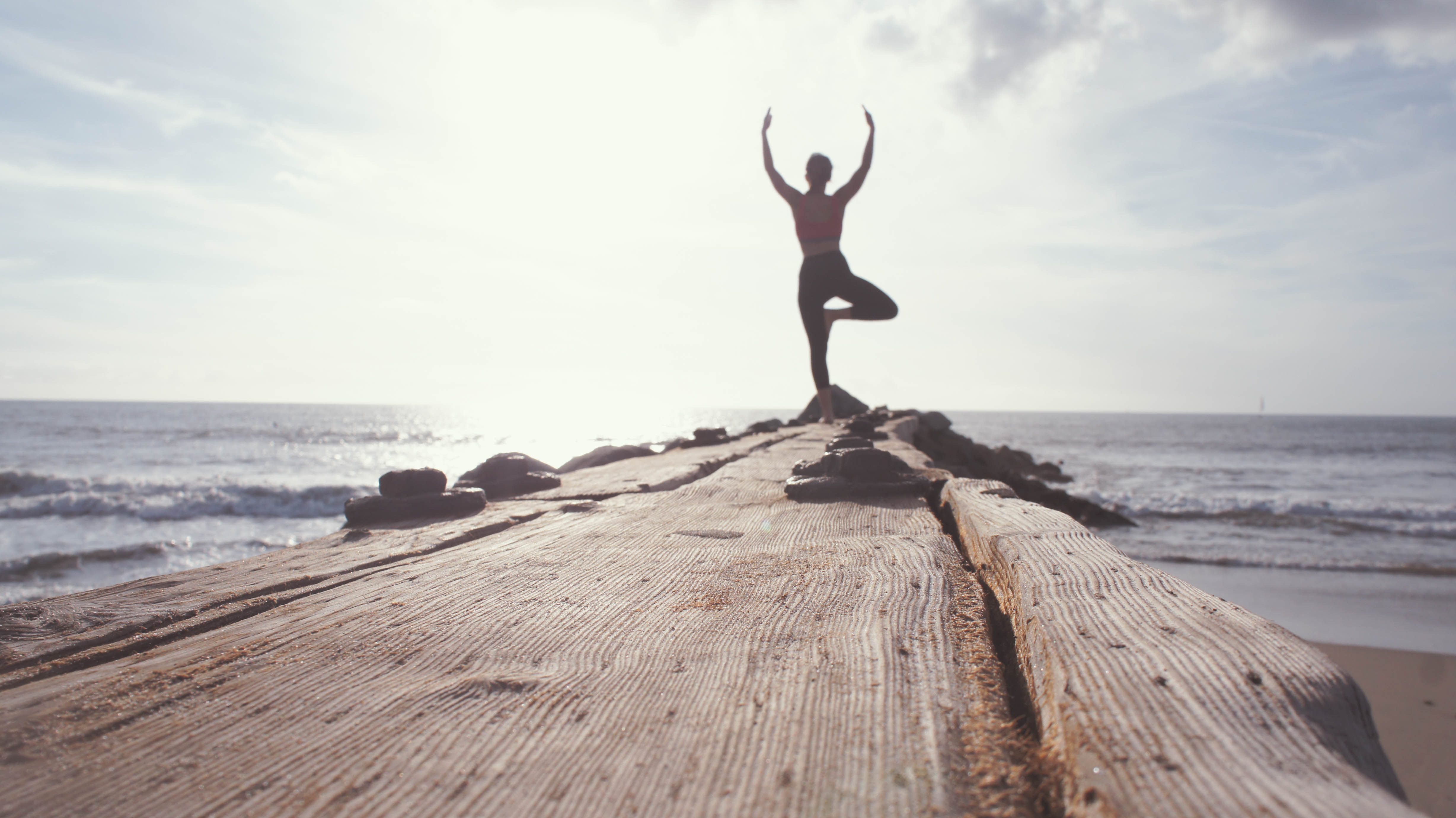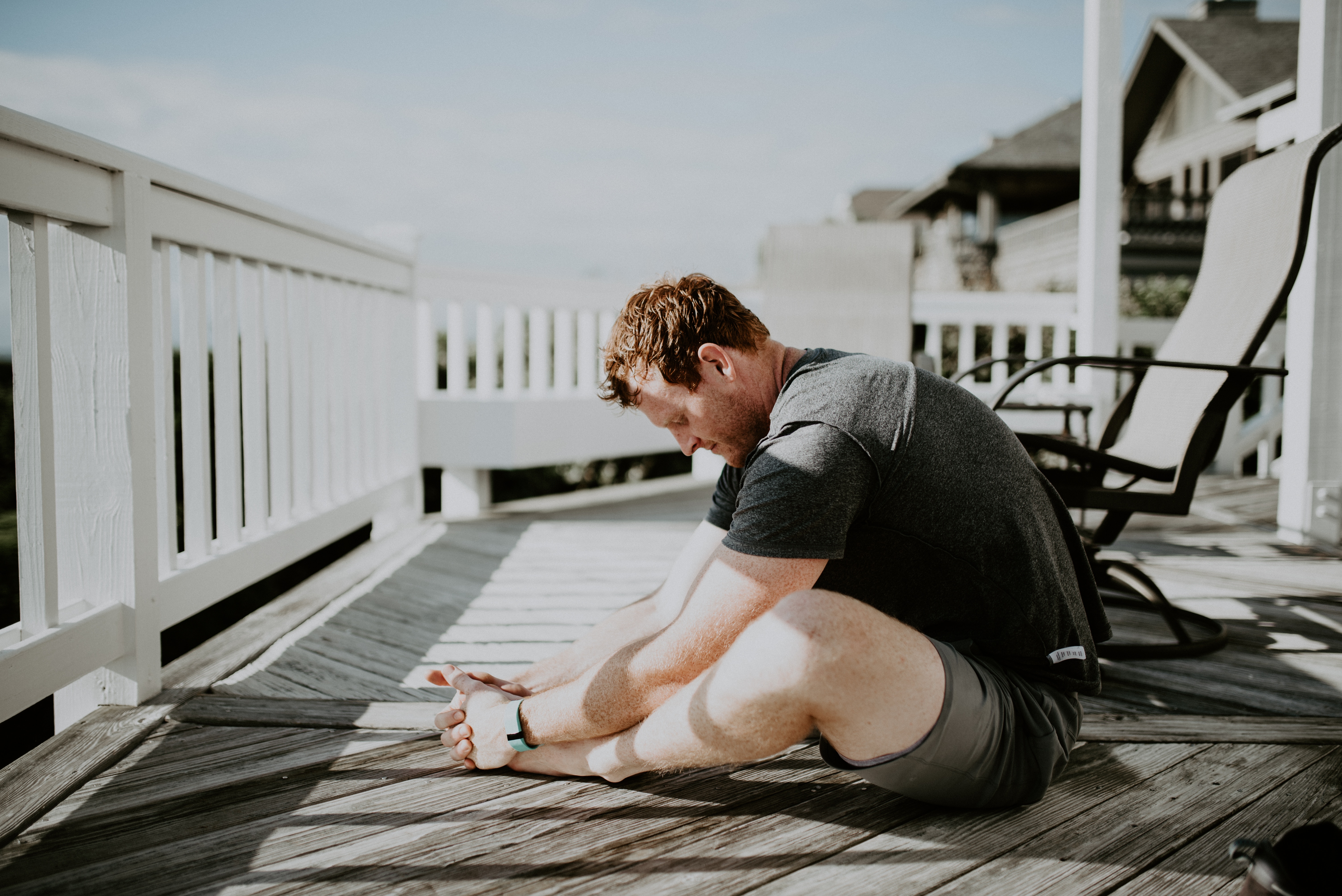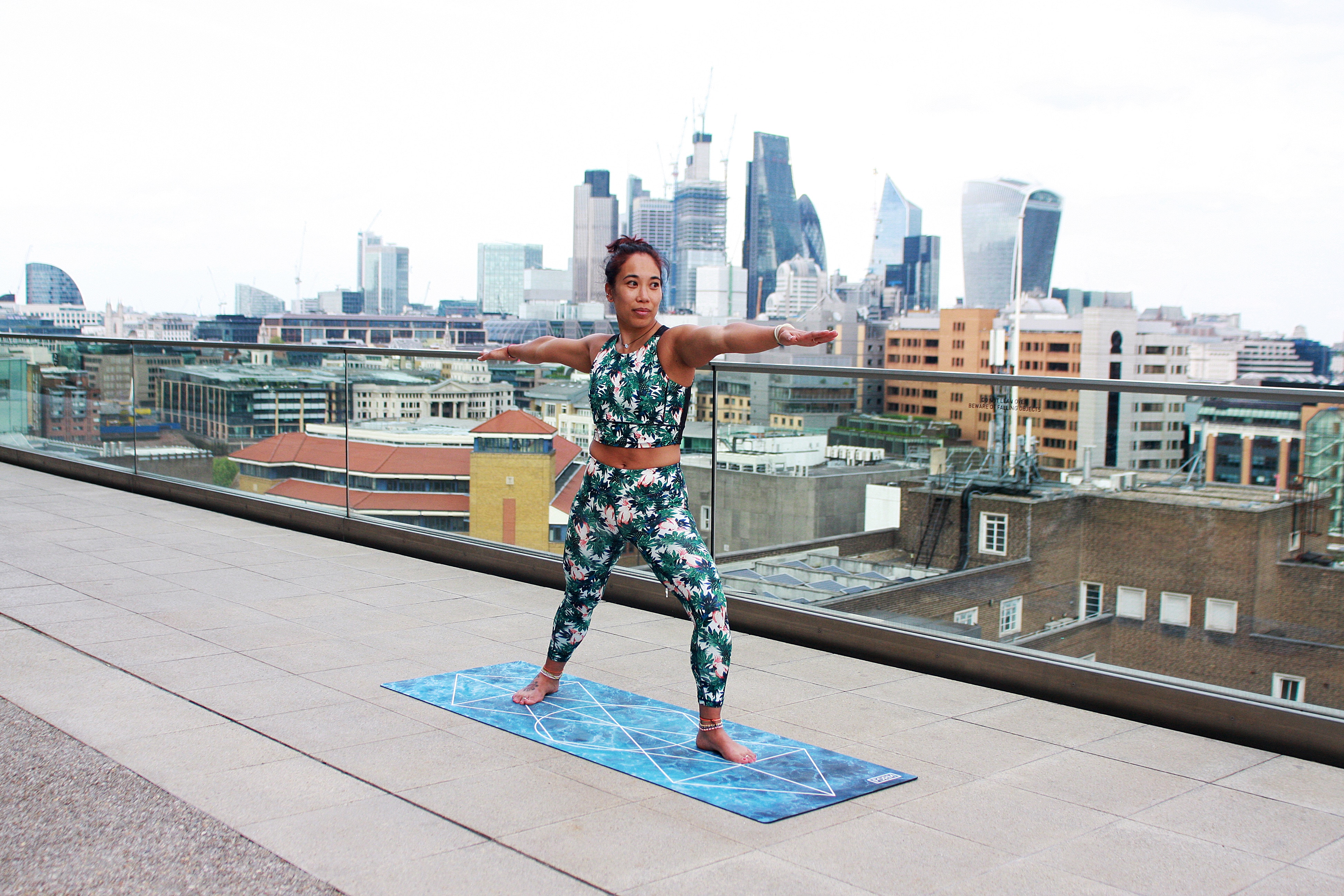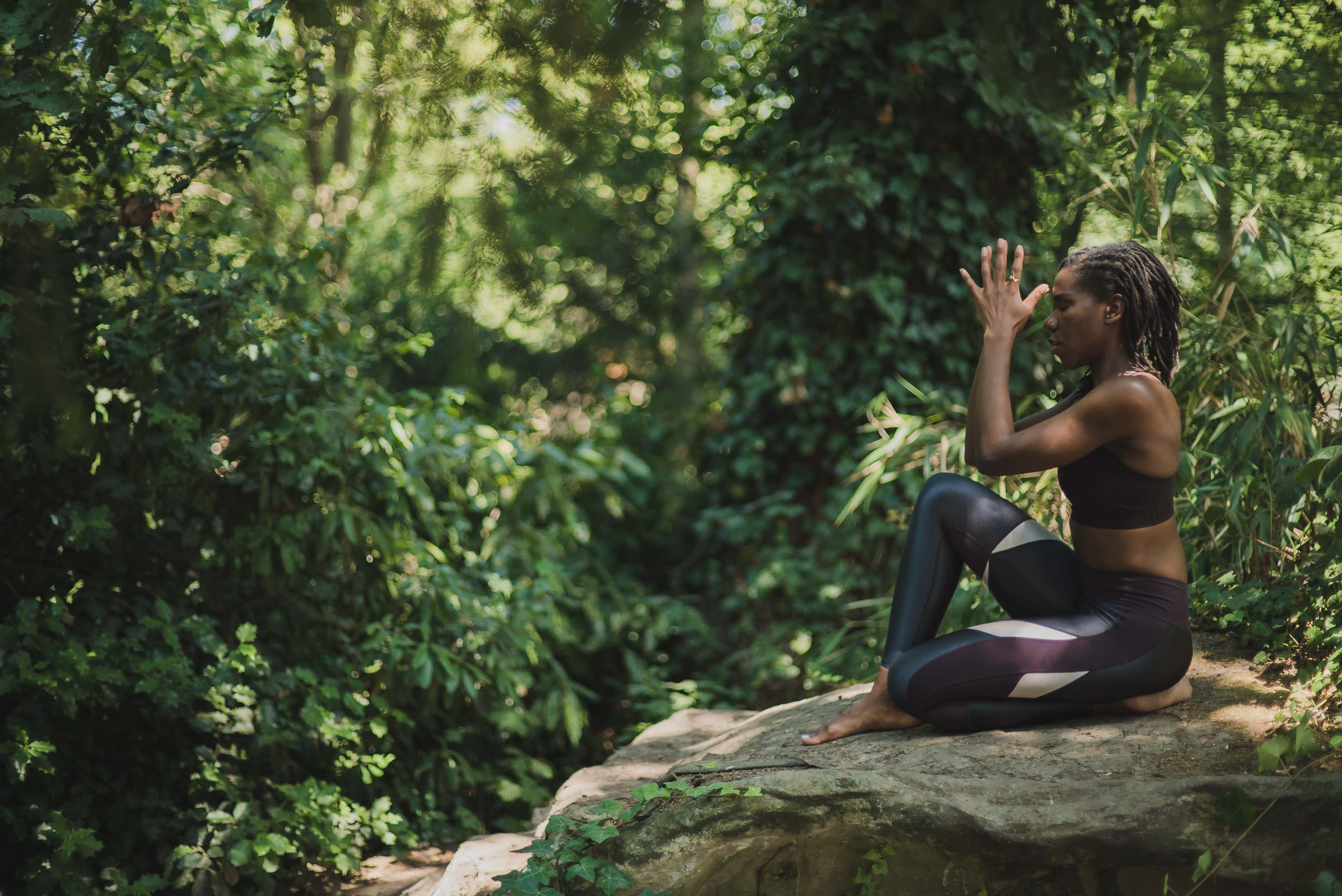What is Yoga of 12 Step Recovery?
Y12SR is a fairly new program called Yoga of 12 Step Recovery. It’s a combination of the traditional practices of yoga, plus the deeper workings of each of the 12-Steps in addiction recovery. Y12SR believes that yoga is a physical, mental, and spiritual practice which can help reconnect the separation caused by addiction. Personal growth and reconnection with the self, with others, and with the world around us are all possible with the help of yoga through the 12-Steps.
Y12SR was founded in 2004 by Nikki Myers, a recovering addict/alcoholic who wanted to share her strengths in a practical way that could help strengthen others with similar past traumas and addiction struggles. The main focus is to combine the “somatic approach of yoga with the cognitive approach of the 12-Step Recovery model.” Nikki has currently celebrated 18 years of sobriety. She shares her introduction openly with everyone, which is: “Hi, I’m Nikki. I am an addict, alcoholic, codependent, survivor of childhood and adult sexual trauma, former relapser; overspender, yoga therapist, a somatic practitioner (which means trauma healing), a mother, MBA practitioner, and so much more.”
The Importance of Mind/Body Connection
The National Institue of Health (NIH) claims decades of evidence-based research has proven that the mind and body actually affect one another. Generations ago, it was falsely believed that strong emotional reactions were a result of mental illness. But really, the opposite is true. Psychological states can have powerful influences on the condition and health of the body. And believe it or not, what we do with our bodies can also have effects on our minds.
The University of Minnesota defines the Mind-Body connection: “our thoughts, feelings, beliefs, and attitudes can positively or negatively affect our biological functioning. In other words, our minds can affect how healthy our bodies are.”

There is a list of many other exercises on can do to experience (or even improve!) this mind-body connection. Activities such as dance therapy, biofeedback, tai chi, and simply stretching throughout the day continually show the potential of growing a healthier mind-body connection. The connection between the two is of so much importance that if we as humans lacked it, we would not be able to survive.
However, it’s true that a lot of people– especially those of us who have experienced trauma, grief, addiction– can feel disconnected in some way.
Perhaps the mind takes over too often and we live in our racing thoughts, letting them take the wheel too much. Or, on the other hand, maybe our bodies take dominance in our daily habits, resulting in impulsive eating, sex addiction, or blocked emotions. The key with the mind-body connection is to find a healthy balance between the two.
How Does Yoga of 12 Step Recovery Help Addicts?
First, Y12SR completely dispells the stereotype of the modern, western standard of yoga. Yoga is not just for hip, in-shape, wealthy or enlightened hippies who drink green juice with every meal. It’s not just for spiritual people. Nor is it only for flexible, thin people.
Having a helpful yoga practice can be for anyone! There’s no requirement, prerequisite, gender, race, class, age group, fitness level, health condition, political or religious standing that yoga is specifically geared towards or against. Y12SR is open to all.
The word itself, yoga, actually means “union”. It’s a place to come together and connect, both with your self and with others. If you have a “self” and you want to explore what that means on a greater level, then yoga is for you.
Forming a Regular Practice
Yoga of 12 Step Recovery encourages daily meditation or contemplation. With a regular yoga practice, it also builds self-awareness, focus, routine, personal and interpersonal connection, and physical flexibility and strength.
Stepping out of the world of addiction can feel really confusing, uncomfortable, and chaotic. Having a place to become still, focus inward, and be guided through releasing daily stresses can be a crucial daily process for recovery.

“Radical Self Acceptance”
A lot of recovering addicts who find yoga of 12 step recovery helpful claim that it gives them a chance at what is revealed through practice as “radical self-acceptance.” This doesn’t mean you should accept your addiction as something that will forever have control over your life and merely give into it. It also does not mean we should accept all actions or continue to do them if they harm us. No, it’s much more powerful than that.
Radical self-acceptance means: I accept myself as I am now. I accept the past as I experienced it. I accept the good parts of me, and the parts I know I need to work on. This is the idea of yoga, and why it’s so helpful during recovery. It releases harsh shame and judgment, two things all addicts face, in exchange for acceptance and perseverance.
Relapse Prevention
Another groundbreaking tool that comes with practicing yoga of 12 step recovery is the amount of focus teachers place on relapse prevention. While implementing the 12 steps, the guided yoga sessions move through mind/body postures that help you really “feel” each step. Moving further beyond the verbal sharing of 12 step support groups, yoga poses (called asanas) encourage the breath, awareness, and mental focus towards any given working step.
The goal is what yoga instructors call “full reintegration of the whole self.” Certain concepts can be felt within the body that surpass the rational understanding of the mind. It might sound silly or confusing, but if you’ve ever experienced a big comforting hug embrace, danced until you felt giddy, or been left breathless after a first kiss, these are small examples of the same idea. When a recovery step is combined with this full reintegration within the body, it becomes more than a verbal discussion with mental/emotional workings. Rather, it becomes a full memorable experience throughout the whole self.
Breaking Barriers (CoDA Model)
Yoga of 12 step recovery is also unique in that it covers sessions on breaking barriers of codependent habits. There are a lot of support groups for codependents specifically, but rarely are addiction and codependency combined in a specific 12 step program. Here, it is believed that everyone has some form of codependency, which Myers calls “the disease of the lost self.”
Therefore, because this side of the equation is often ignored in even some of the best programs today, many well-intentioned, hard-working addicts in recovery face relapse. Difficulties toward relapse arise when there is underlying codependency beneath the surface of addiction, which is already complicated within itself. Addressing codependent relationships upfront during yoga of 12 step recovery offers a chance for a “rediscovery of the self inside the body.”

Education
Teachers of yoga of 12 step recovery undergo in-depth training and education before being able to offer classes. The education pattern for Y12SR first looks at the neuroscience perspectives of addiction in the brain. Extensive study is done regarding trauma’s effects on the body, mind, and development. When it comes to healing, Y12SR values a holistic (meaning as a whole; inclusive of all parts), mind, body, soul approach. Anyone who offers yoga of 12 step recovery holds a deep value for each person who comes to participate as a unique, whole individual. The ideal outcome is for each student and recovering addict who practices to better understand, accept, and work with the complete and recovering self.
Urban Outreach Project
Yoga of 12 step recovery isn’t like most yoga classes offered today. All of their classes are donation-based, meaning when you come to class, there’s no set fee– you simply give what you can. Whether that’s a smile, $1.00, $20.00 or any other amount you feel comfortable paying, they accept all sizes of donation.
Along with the affordability of the program, they also strive to offer yoga of 12 step recovery in under-reached communities. The Urban Outreach Project (UOP) works hard to arrange free yoga recovery classes for those who wish to learn and use yoga as part of their recovery journey, but might not otherwise know how to go about taking a class.
Do You Have to Be a Recovering Addict to Do Y12SR?

A majority of the people who practice yoga of 12 step recovery have experienced addiction in their personal lives. Many of these include people who are recovering addicts themselves. After all, that is who the program was created for with care.
Additionally, Y12SR can also include individuals who were greatly affected by substance abuse or addiction. Spouses of addicts, family members, food addicts, Al-Anon attendees, and people who have been sober for a long time are all welcome to practice as well. The diversity of the community is what makes groups thrive. Hence, this is the hope of the practice.
Is Y12SR a Scam? Is it Some Kind of Cult?
Yoga of 12 step recovery is in no way a scam. It’s simply the association of yoga aimed at helping people through addiction and into recovery. I attended a class before and it was totally laid back, but still powerful. They do not trick anyone into paying money they don’t wish to pay. In fact, most classes only operate by donation, so there’s no fixed price to take a class.
Some people might perceive yoga as a weird cult, but that’s not true. Y12SR will never make you do anything you don’t want to do or push you beyond what you’re comfortable with. They don’t preach any specific belief. Nor do they seek to convert anyone into any particular lifestyle. Plainly, it’s a safe space for people affected by addiction to come and experience a moment of clarity.* All while working on their physical body.
I’m Not Religious or Spiritual– Why Would I Practice Y12SR?
You do not have to be religious or “spiritual” to practice yoga of 12 step recovery. Even though the programs of yoga and the 12 steps do hold core beliefs that a higher power or “outer source of caring goodness” can greatly help through sobriety, you don’t need to change your beliefs in any way to try it for yourself. If you find spirituality to be a bit “woo woo” or it’s not your style, yoga is still great at relieving stress, finding peace, and improving the mind while strengthening and working out the body.
While working the 12 steps, you can still utilize yoga to your advantage in whichever ways it works for you. Chances are you will find at least a few philosophies or helpful practices that can help you along the way. No specific belief system required.
It’s Not a Cure, it’s an Extra Healing Practice for Recovery

The resources we’ve shared so far are in no way an attempt to claim yoga as a “treatment” or a cure to addiction. The organizers of yoga of 12 step recovery know that it’s an additional helpful practice during 12 step recovery. As it states on their website:
“Y12SR in no way replaces 12-step meetings, a sponsor, or any other part of a 12-step recovery program. It is an adjunct providing another helpful tool to more fully address the physical, mental and spiritual dis-ease of addiction.”
You’ll have a better chance at a successful sober recovery when several different modalities of guidance during your recovery are present. This can look different for each person. Yoga of 12 step recovery is simply one of many options. Keep in mind, a stable 12-step program can be one of the most helpful resources for you to stay on the path of sobriety after treatment. Yoga in this context is a proven, helpful tool to achieve additional help with recovery goals.
What do you think? Have you found Yoga of 12 Step Recovery Helpful at all, or not so much? Share your thoughts with us in the comments section below!
Sources
Health Benefits of Yoga: Asian Journal of Physical Education (2018)
Yoga and Addiction Recovery: Journal of Alcohol and Drug Education (2013)
A narrative review of yoga and mindfulness as complementary therapies for addiction (2013)
* This post is in no way sponsored by or aimed at promoting any company or product. All content is informational. Opinions within do not reflect those of Prevail Intervention.
